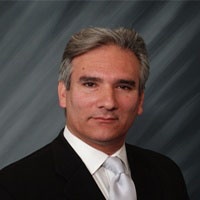Plainfield RICO Act Lawyer, Michigan
Sponsored Law Firm
-
 x
x

Click For More Info:
-
The Law Offices of Richard L. Cooper, P.A.
848 Brickell Avenue Suite 800 Miami, FL 33131» view mapDWI/DUI, Drug Trafficking, Felony Nationally Ranked Top 40 Under 40
With Richard L. Cooper you can expect a trusted confidant who will work diligently to fully understand your case and determine a road map to help you regain control of your life.
800-756-2781
Not enough matches for Plainfield RICO Act lawyer.
Below are all Plainfield Criminal lawyers.
Akiva Goldman
✓ VERIFIED *Status is reviewed annually. For latest information visit here(866) 666-2889 - CALL NOW! FREE CONSULTATION - Mr. Akiva Goldman is the managing partner of Goldman & Associates and a member of the State Bar of Mich... (more)
Thomas B. Baynton
✓ VERIFIED *Status is reviewed annually. For latest information visit hereAt the Law Office of Thomas Baynton PLLC, Thomas Baynton is an experienced attorney serving the people of West Michigan. If you have been charged with... (more)
John M. Danian
✓ VERIFIED *Status is reviewed annually. For latest information visit hereAt Danian Law Office, PLLC, we know how stressful a legal conflict can be. Whether you are facing anything from criminal charges to a civil lawsuit, t... (more)
Judith Anne Baxter
FREE CONSULTATION
CONTACTMichael David Adams
FREE CONSULTATION
CONTACTDaniel L. Price
FREE CONSULTATION
CONTACTMichael A. McInerney
FREE CONSULTATION
CONTACTBrandon Gardner
FREE CONSULTATION
CONTACT
 Richard L. Cooper Miami, FL
Richard L. Cooper Miami, FL AboutMiami Attorney at Law
AboutMiami Attorney at Law ServicesCriminal Defense
ServicesCriminal Defense


